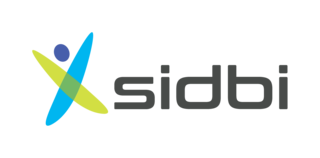Related Research Articles

The European Investment Fund (EIF), established in 1994, is a financial institution for the provision of finance to SMEs, headquartered in Luxembourg. It is part of the European Investment Bank Group.

A capital market is a financial market in which long-term debt or equity-backed securities are bought and sold, in contrast to a money market where short-term debt is bought and sold. Capital markets channel the wealth of savers to those who can put it to long-term productive use, such as companies or governments making long-term investments. Financial regulators like Securities and Exchange Board of India (SEBI), Bank of England (BoE) and the U.S. Securities and Exchange Commission (SEC) oversee capital markets to protect investors against fraud, among other duties.

The European Investment Bank (EIB) is the European Union's investment bank and is owned by the 27 member states. It is the largest multilateral financial institution in the world. The EIB finances and invests both through equity and debt solutions companies and projects that achieve the policy aims of the European Union through loans, equity and guarantees.

Microfinance consists of financial services targeting individuals and small businesses who lack access to conventional banking and related services. Microfinance includes microcredit, the provision of small loans to poor clients; savings and checking accounts; microinsurance; and payment systems, among other services. Microfinance services are designed to reach excluded customers, usually poorer population segments, possibly socially marginalized, or geographically more isolated, and to help them become self-sufficient. ID Ghana is an example of a microfinance institution.

Small businesses are types of corporations, partnerships, or sole proprietorships which have a small number of employees and/or less annual revenue than a regular-sized business or corporation. Businesses are defined as "small" in terms of being able to apply for government support and qualify for preferential tax policy. The qualifications vary depending on the country and industry. Small businesses range from fifteen employees under the Australian Fair Work Act 2009, fifty employees according to the definition used by the European Union, and fewer than five hundred employees to qualify for many U.S. Small Business Administration programs. While small businesses can be classified according to other methods, such as annual revenues, shipments, sales, assets, annual gross, net revenue, net profits, the number of employees is one of the most widely used measures.
Small and medium-sized enterprises (SMEs) or small and medium-sized businesses (SMBs) are businesses whose personnel and revenue numbers fall below certain limits. The abbreviation "SME" is used by international organizations such as the World Bank, the OECD, European Union, the United Nations, and the World Trade Organization (WTO).
Seed money, also known as seed funding or seed capital, is a form of securities offering in which an investor puts capital in a startup company in exchange for an equity stake or convertible note stake in the company. The term seed suggests that this is a very early investment, meant to support the business until it can generate cash of its own, or until it is ready for further investments. Seed money options include friends and family funding, seed venture capital funds, angel funding, and crowdfunding.
Funding is the act of providing resources to finance a need, program, or project. While this is usually in the form of money, it can also take the form of effort or time from an organization or company. Generally, this word is used when a firm uses its internal reserves to satisfy its necessity for cash, while the term financing is used when the firm acquires capital from external sources.

The KfW, which together with its subsidiaries DEG, KfW IPEX-Bank and FuB forms the KfW Bankengruppe, is a German state-owned investment and development bank, based in Frankfurt. As of 2014, it is the world's largest national development bank and as of 2018 Germany's third largest bank by balance sheet. Its name originally comes from Kreditanstalt für Wiederaufbau. It was formed in 1948 after World War II as part of the Marshall Plan.
A micro-enterprise is generally defined as a small business employing nine people or fewer, and having a balance sheet or turnover less than a certain amount. The terms microenterprise and microbusiness have the same meaning, though traditionally when referring to a small business financed by microcredit the term microenterprise is often used. Similarly, when referring to a small, usually legal business that is not financed by microcredit, the term microbusiness is often used. Internationally, most microenterprises are family businesses employing one or two persons. Most microenterprise owners are primarily interested in earning a living to support themselves and their families. They only grow the business when something in their lives changes and they need to generate a larger income. According to information found on the Census.gov website, microenterprises make up 95% of the 28 million US companies tracked by the census.

Small Industries Development Bank of India (SIDBI) is the apex regulatory body for overall licensing and regulation of micro, small and medium enterprise finance companies in India. It is under the jurisdiction of Ministry of Finance, Government of India headquartered at Lucknow and having its offices all over the country.
Micro financing in Tanzania started in 1995 with SACCOS and NGOs. It has since then contributed to the increasing success of international micro financing. Microfinance stills remains a relatively new in Tanzania since it has not penetrated yet. Since 1995, microfinance has been linked to poverty alleviation programs and women. The government made efforts to ensure commercial banks have continued to provide financial support to the small entrepreneurial business. However a microfinance National Policy was implemented in 2002 to encourage and support microfinances in the country. Since the implementation, micro financing was officially launched and recognized as a poverty alleviation tool. Due to its increase exposure and use in the nation, commercial banks have developed interests in to offer microfinance. There are various microfinance banks that functions as supporting institutions in the country that usually provide microfinance services. These may include the CRDB, National Microfinance Bank, and AKIBA. However there are also other few banks that are concerned with micro financing in Tanzania such as the PRIDE and SEDA, Tanzania Postal Bank and FINCA. Community and small banks have also expressed interest in the same including the NGOs and other non-profit organizations.
Zhejiang Tailong Commercial Bank (TLB), one of several SME financing service providers, is headquartered in Taizhou, Zhejiang Province, Eastern China. Since its inception, the bank has cumulatively provided over ¥150 billion loans with average loan size of ¥500,000 to its clientele, and over 90% of which are peasants-turned entrepreneurs. As its clientele often lacks the assets required by larger banks when applying for a loan, TLB grants and disburses loans secured through guarantors, which collateral form accounts for 99% of the total loans outstanding. In addition to that, the number of loan officers is almost half of the total staff, due to the labor-intensive nature of SME lending business. By the end of December 2011, TLB had eight branches, two village and town banks and 50 sub-branches which are mainly spread out around the Yangtze River Delta region.
SME finance is the funding of small and medium-sized enterprises, and represents a major function of the general business finance market – in which capital for different types of firms are supplied, acquired, and costed or priced. Capital is supplied through the business finance market in the form of bank loans and overdrafts; leasing and hire-purchase arrangements; equity/corporate bond issues; venture capital or private equity; asset-based finance such as factoring and invoice discounting, and government funding in the form of grants or loans.
Grameen Fund is a not-for-profit company in Bangladesh established by Muhammad Yunus to provide risk capital to small and medium enterprises (SME) beyond the scope of Grameen Bank's objectives of providing microcredit to the very poor. Incorporated on 17 January 1994, Grameen Fund started operation in February 1994, inheriting 40 projects of Grameen bank with assets of 391 million Bangladeshi taka investmented in small industries, fisheries and agriculture. Its lending capital is provided by Grameen Bank and other institutions like Calvert Foundation. From the first Calvert Foundation investment, approximately 6,000 permanent jobs have been created or maintained in agriculture, engineering, poultry, dairy, fishery, and handicrafts sectors.
Hattha Bank (HKL) is a Cambodian bank and microfinance institution in Cambodia.
The term nano gap was coined by accounting firm Deloitte to describe the shortage of capital to fund the retirement of baby-boomer entrepreneurs seeking to sell their small, medium enterprises (SMEs). In the Deloitte report: "Micro-cap typically refers to those companies with an equity value of less than $250 million. Nano-cap is another term that is used to refer to companies with a value of less than $10 million."
Micro Units Development and Refinance Agency Bank ) is a public sector financial institution in India. It provides loans at low rates to micro-finance institutions and non-banking financial institutions which then provide credit to MSMEs. It was launched by Prime Minister Narendra Modi on 8 April 2015.
Dr. Sailendra Narain is a development finance specialist born in Nawadah, Bihar Province, India. For over 40 years, Narain has been a pioneer in developing the global SME sector. His specialities include: designing policy frameworks for SME Growth, establishing SME financing programs in banking and development financial institutions, and capacity building for SMEs with a focus on Entrepreneurship.
Morocco's involvement with the World Bank primarily focuses on infrastructure, such as road, transport and water sanitation. In addition the bank supports projects across the health sector, youth development, renewable energy, governance and the support of small and medium enterprises (SMEs). 27 projects are ongoing, including three projects initiated in 2017. The World Bank invested over US$1 billion every year from 2014 to 2016.
References
- ↑ "IFC Enterprise Finance Gap Database - Summary Data | Data | World Bank Group Finances". finances.worldbank.org. Archived from the original on 2015-11-05.
- ↑ Potential of mesofinance eib.org [ dead link ]
- ↑ "Home | AFD - Agence Française de Développement".